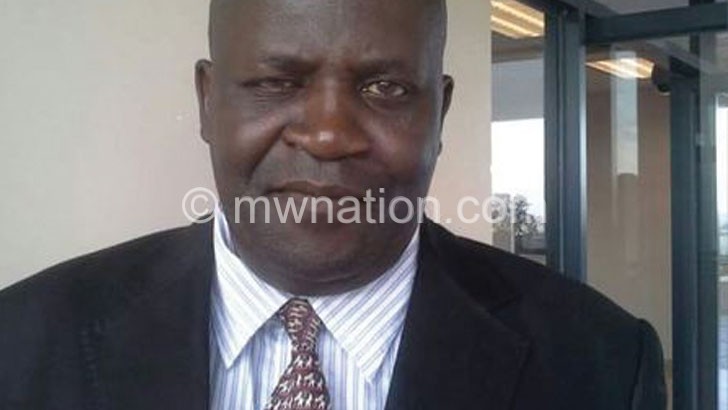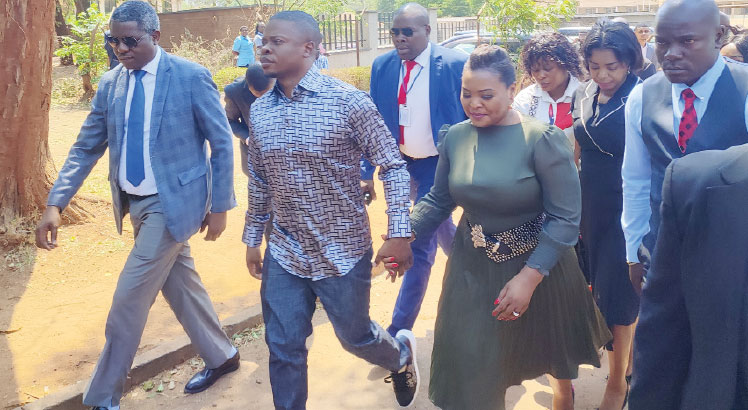Escom lied on power prices’
Parliamentary Committee on Natural Resources and Climate Change chairperson Welani Chilenga and two other people in the energy sector have disputed claims by the Electricity Supply Corporation of Malawi (Escom) chief executive officer Kamkwamba Kumwenda that the organisation is buying power at K140 per kilowatt per hour (kwh).
In an interview on Thursday, Chilenga wondered where Escom is getting its figures because according to his understanding, the power utility organisation is buying electricity at an average of K59.2 per kwh, and not K140 as Kumwenda said during a press briefing on Wednesday last week.
Said Chilenga: “I was wondering where Escom is getting is figures, and how it has arrived at those figures. It is not true that Escom is buying electricity at K140; that is not true.”
Speaking at the press briefing, Kumwenda claimed that Escom is dying because it is buying power at K140 per kwh and selling the same at K104 per kwh.
He said at this rate, the entity is operating at a loss and, therefore, cannot survive.

Said Kumwenda: “Escom is charging on average the end-user customer K104 per kwh, but we are procuring energy on average from the producers at K140 per kwh. So, the question is who is financing the difference?
“Since 2018, Escom has lost K112 billion….Escom is dying, we are killing Escom. We will ask [Parliament] to lobby for Mera to allow us to adjust the tariffs. Members of Parliament should be objective on this issue. If Malawians want electricity, they need to pay for it; otherwise, we will close offices because we are not making profits,” he said.
On Wednesday this week Escom, jointly with the Power Marketing Limited (PML), released a 2022-26 electricity base tariff application in which, among other things, the two entities indicated that Escom is buying power at K74.69 per kwh.
In the proposal, the entities asked the energy regulator in the country, Malawi Energy Regulatory Authority (Mera), to raise power tariffs by 99 percent in the next four years, starting this year with an 80 percent hike.
But Chilenga also disputed that Escom is buying power at K74.69 per kwh.
He said Escom is buying power from Wovwe at K18.61, Tedzani at K25.37, Kapichira at K29.37, Nkula A K30.30, Nkula B K47.74, JCM Salima K87.48, JCM Golomoti K106.10, Mulanje Hydro K128.90, which is a total average of K59.2 per kwh.
“This is a clear indication that Escom is making profits since it is selling power at K104 per kwh,” he said.
“Nobody can dispute these figures, and it is strange that Escom is telling Malawians that it are buying power at K140 per kwh, how is that possible?” wondered Chilenga.
Chilenga said there is no way Escom will be given a 99 percent increase as they are proposing.
He, however, said following Escom’s proposal, his committee as well as the Public Accounts, Legal Affairs, Trade and Industry committees will be meeting to produce a comprehensive report during the next meeting of Parliament, which will sort out these issues once and for all.
A source within Egenco agreed with Chilenga, saying Escom is lying that it is buying power from Egenco at K140 per kwh.
He said: “Truth is that, 98 percent of the power Egenco sells to Escom is at between 18 and 24 per kwh.”
Another source at Mera also disputed figures which Escom released, and challenged it to present correct figures.
When we put it to Kumwenda that some stakeholders in the energy sector are disputing his figures, he stood his ground, arguing that the issues are very technical and promised to send us invoices from the power producers.
He said the current tariff methodology is based on dispatched capacity, and not available capacity, meaning that Escom must find funds to pay Egenco a total of K83 billion for energy not delivered since 2018.
When asked about other producers like JCM, who are charging less than Egenco, Kumwenda said JCM Solar agreed with PML to sell power at US Cents 8.483 that’s roughly K85 per kwh.
But in the advert which Escom jointly released on Wednesday with PML titled ‘2022-26 electricity base tariff application’, the entities indicated that Escom is buying power at K74.69 per kwh which is almost half the K140 per kwh.
When asked why in the proposal to Mera they presented a different figure, Kumwenda simply said the figures were computed before the devaluation of the kwacha.
In October 2018, Mera approved a 31.88 percent Escom base tariff covering the period between 2018 and 2022.
The implementation of the base tariff was segmented into four annual tranches—20 percent, 7.20 percent, negative three percent and 10 percent tariff adjustments—for the first, second, third and fourth years, respectively





